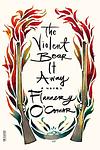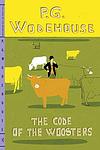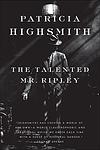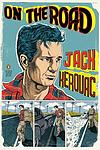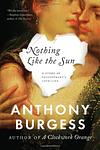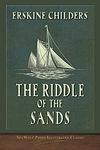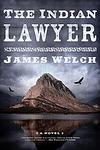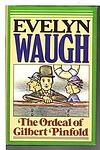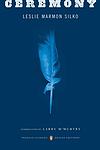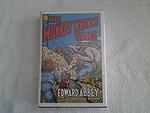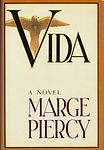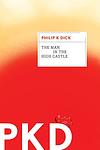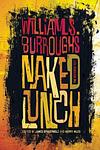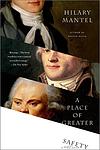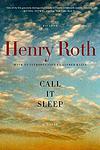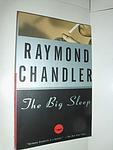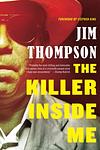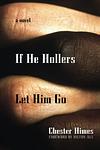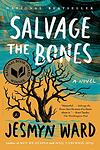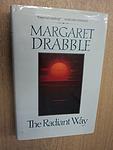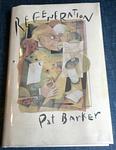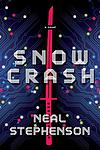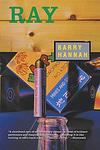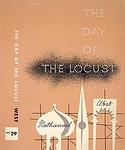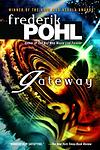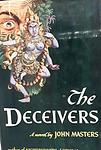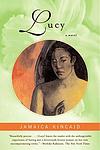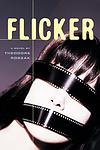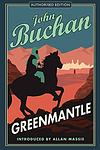100 Best Novels in English Since 1900
This is one of the 284 lists we use to generate our main The Greatest Books list.
-
Ulysses by James Joyce
Set in Dublin, the novel follows a day in the life of Leopold Bloom, an advertising salesman, as he navigates the city. The narrative, heavily influenced by Homer's Odyssey, explores themes of identity, heroism, and the complexities of everyday life. It is renowned for its stream-of-consciousness style and complex structure, making it a challenging but rewarding read.
-
Absalom, Absalom! by William Faulkner
This novel is a complex narrative about Thomas Sutpen, a poor white man who rises to power in the South, aiming to create a dynasty that would rival the old aristocratic families. However, his ambitions are thwarted by his own flawed decisions and the overarching racial and societal tensions of the era. The story is not told in a linear fashion but rather through a series of interconnected flashbacks and narratives, offering different perspectives on the same events. The book explores themes of family, class, race, and the destructive power of obsession.
-
Gravity's Rainbow by Thomas Pynchon
Set during the end of World War II, the novel follows Tyrone Slothrop, a lieutenant in the U.S. Army, as he tries to uncover the truth behind a mysterious device, the "Schwarzgerät", that the Germans are using in their V-2 rockets. The narrative is complex and multi-layered, filled with a vast array of characters and subplots, all connected by various themes such as paranoia, technology, and the destructive nature of war. The book is known for its encyclopedic nature and its challenging, postmodernist style.
-
Native Son by Richard Wright
This novel tells the story of Bigger Thomas, a young African-American man living in Chicago's South Side during the 1930s. Bigger's life takes a tragic turn when he accidentally kills a young white woman. The incident leads to his arrest and trial, revealing the deep-seated racial prejudices and injustices prevalent in American society at the time. The narrative explores themes of poverty, systemic racism, fear, and the effects of oppression.
-
Orlando: A Biography by Virginia Woolf
The novel follows the life of a young nobleman in Elizabethan England who inexplicably transforms into a woman at the age of 30 and lives on for three centuries without aging. Throughout the centuries, the protagonist experiences various historical events, engages in relationships with both men and women, and explores the complexities of gender identity and sexuality. The book is an exploration of the fluidity of gender and time, as well as a critique of societal norms and expectations.
-
The Rainbow by D. H. Lawrence
The novel explores the lives of three generations of a farming family, the Brangwens, living in rural England in the late 19th and early 20th century. The narrative primarily focuses on the sexual and emotional maturation of Ursula Brangwen, a young woman who rejects traditional societal norms in her quest for spiritual fulfillment and personal independence. The book is known for its vivid depiction of the English countryside and its frank portrayal of sexual desire.
-
Under Western Eyes by Joseph Conrad
Set in St. Petersburg and Geneva, the novel follows a young Russian student named Razumov who becomes embroiled in revolutionary politics after unwittingly helping a fellow student who has assassinated a high-ranking official. Struggling with his own beliefs and loyalties, Razumov is sent to Geneva as a spy, where he becomes entangled with the exiled revolutionaries, including a woman named Haldin. The novel explores themes of identity, betrayal, and the ideological divide between East and West.
-
Invisible Man by Ralph Ellison
The novel is a poignant exploration of a young African-American man's journey through life, where he grapples with issues of race, identity, and individuality in mid-20th-century America. The protagonist, who remains unnamed throughout the story, considers himself socially invisible due to his race. The narrative follows his experiences from the South to the North, from being a student to a worker, and his involvement in the Brotherhood, a political organization. The book is a profound critique of societal norms and racial prejudice, highlighting the protagonist's struggle to assert his identity in a world that refuses to see him.
-
The Violent Bear It Away by Flannery O'Connor
The novel revolves around a young boy, Francis Tarwater, raised by his religious fanatic great-uncle in the backwoods of the American South. After his uncle's death, he is torn between following his uncle's wish for him to become a prophet, and the allure of a more conventional life presented by his educated uncle, Rayber. The story is a deep exploration of religious extremism, the struggle between free will and destiny, and the power of prophecy.
-
Tropic of Cancer by Henry Miller
The book is a semi-autobiographical novel set in 1930s Paris and describes the protagonist's life as a struggling writer. The narrative is filled with vivid descriptions of the city, sexual encounters, and philosophical musings, all penned in a stream-of-consciousness style. The protagonist's experiences living in poverty, his relationships with other expatriates, and his pursuit of artistic freedom are central to the story. Despite the explicit content, the novel is noted for its candid exploration of the human condition and the author's quest for personal and creative authenticity.
-
The Sun Also Rises by Ernest Hemingway
The novel is a poignant tale set in the 1920s post-World War I era, focusing on a group of American and British expatriates living in Paris who travel to Pamplona, Spain for the annual Running of the Bulls. The story explores themes of disillusionment, identity, and the Lost Generation, with the protagonist, a war veteran, grappling with impotence caused by a war injury. The narrative is steeped in the disillusionment and existential crisis experienced by many in the aftermath of the war, and the reckless hedonism of the era is portrayed through the characters' aimless wanderings and excessive drinking.
-
Wide Sargasso Sea by Jean Rhys
This novel is a postcolonial prequel to "Jane Eyre," exploring the life of Mr. Rochester's mad wife, Bertha. Set in Jamaica during the 1830s, it follows the story of Antoinette Cosway, a white Creole heiress, from her youth in the Caribbean to her unhappy marriage and move to England. Caught in a society that both rejects and exoticizes her, Antoinette is ultimately driven into madness by her oppressive husband and the haunting legacy of colonialism.
-
The Code of the Woosters by P. G. Wodehouse
In this comedic British novel, a wealthy and idle young man and his valet navigate a series of mishaps and misunderstandings involving a cow-creamer, an antique book, a policeman's helmet, and a pair of star-crossed lovers. Throughout the story, the young man's valet employs his intelligence and cunning to rescue his employer from various predicaments, often involving troublesome relatives and romantic entanglements. The story is a classic example of 20th-century humor and satire, filled with witty dialogue and absurd situations.
-
Tender Is the Night by F. Scott Fitzgerald
Set in the French Riviera in the 1920s, the novel traces the tragic tale of a young psychiatrist, his beautiful wife, and the drama that unfolds amongst their circle of wealthy expatriate friends. The psychiatrist's wife suffers from mental illness, which leads to his own downfall as he struggles to keep his marriage intact and maintain his professional reputation. The narrative explores themes of wealth, love, desire, and the destructive power of obsession, painting a haunting portrait of the dark side of the glamorous Jazz Age.
-
Giovanni's Room by James Baldwin
The novel explores themes of identity, sexuality, and societal norms in mid-20th century Paris. The protagonist, an American man, grapples with his homosexual identity while engaged to a woman. His life takes a turn when he becomes involved with an Italian bartender, leading to a tumultuous relationship filled with passion, guilt, and self-loathing. The story is a poignant examination of the human struggle for acceptance and the destructive consequences of denying one's true self.
-
The Talented Mr. Ripley by Patricia Highsmith
The Talented Mr. Ripley is a psychological thriller that follows the story of Tom Ripley, a young man struggling to make ends meet in New York City. When a wealthy shipbuilder mistakes Tom for a close friend of his son, Dickie Greenleaf, he offers him an all-expenses-paid trip to Italy to persuade his wayward son to return home. Instead, Tom becomes obsessed with the luxurious lifestyle of Dickie and his girlfriend, Marge, and goes to extreme lengths to make it his own, including identity theft and murder.
-
At Swim Two-Birds by Flann O'Brien
This novel is a complex, metafictional work that weaves together three separate narratives. The first is about a lazy, hard-drinking college student living with his uncle, the second is about a devilish Pooka and a loquacious old man, and the third is about a fictional character named Finn who seeks revenge on his author for creating him poorly. The narratives eventually intersect in a unique and humorous way, challenging traditional ideas of story structure and character autonomy.
-
On the Road by Jack Kerouac
This novel follows the story of a young man and his friend as they embark on a series of cross-country road trips across America during the late 1940s and early 1950s. The protagonist, driven by a desire for freedom and a quest for identity, encounters a series of eccentric characters and experiences the highs and lows of the Beat Generation. The narrative is a testament to the restlessness of youth and the allure of adventure, underscored by themes of jazz, poetry, and drug use.
-
JR by William Gaddis
The novel is a satirical critique of capitalism, narrating the story of an 11-year-old boy who builds a vast financial empire from his school's payphone. Using the adults around him as pawns, he manipulates the system to his own advantage, turning junk bonds into high profits. The narrative unfolds almost entirely through dialogue, making it a challenging but rewarding read. The book is a commentary on the American dream, exploring themes of greed, exploitation, and the dehumanizing effects of capitalism.
-
Pale Fire by Vladimir Nabokov
The novel is a unique blend of fiction, commentary, and poetry, presented as a 999-line poem written by a fictional poet, followed by an extensive commentary and foreword by his neighbor and academic colleague. The novel blurs the line between reality and fiction, as the commentator's notes reveal an alternative narrative, one of exile, intrigue, and murder. The book is a playful exploration of authorship, deception, and the nature of art.
-
The End of the Affair by Graham Greene
Set in London during and just after World War II, the novel revolves around a love affair between Maurice Bendrix, a writer, and Sarah Miles, the wife of a civil servant. The story is narrated by Bendrix, who is obsessed with Sarah and hires a private investigator to follow her when he suspects she's having another affair. The novel explores themes of love, hate, and the existence of God, with Sarah's faith playing a significant role in the narrative.
-
Red Harvest by Dashiell Hammett
In this hard-boiled detective novel, a private investigator is hired by a newspaper publisher in a corrupt western town to uncover the truth behind the murder of a local worker. As he delves deeper into the investigation, he finds himself embroiled in a chaotic war between rival gangs, corrupt police, and greedy industrialists. The detective uses his cunning and manipulation to turn these factions against each other, leading to a bloody and violent resolution.
-
Mumbo Jumbo by Ishmael Reed
"Mumbo Jumbo" is a satirical and unconventional novel that explores the cultural and political landscape of 1920s America. The narrative centers around an ancient virus known as "Jes Grew" which is spreading rapidly, causing people to dance, feel joy and lose their inhibitions. The protagonist, an African-American detective, is tasked with finding the text that supposedly contains the cure for this "disease". The book uses this premise to critique Western civilization and its attempts to suppress African and other non-European cultures.
-
A Lost Lady by Willa Cather
"A Lost Lady" is a story set in the American West, focusing on a beautiful and captivating woman who is married to a much older, wealthy railroad magnate. As her husband's health and fortune decline, she becomes involved with a younger man, which leads to scandal. The narrative explores themes of changing societal norms, the decline of the pioneer era, and the transformation of the American West.
-
The Hound of the Baskervilles by Arthur Conan Doyle
This classic mystery novel follows a detective and his partner as they investigate a supernatural hound that has been haunting the Baskerville family for generations, supposedly causing the death of the recent family head. As the pair navigate the eerie moors surrounding the Baskerville estate, they unravel a plot of deception and murder, all while trying to protect the new heir from the same grisly fate. The story is a thrilling blend of mystery, suspense, and horror.
-
Far Tortuga by Peter Matthiessen
This novel tells the story of a group of Caribbean turtle fishermen who set out on a dangerous journey to the remote island of Far Tortuga. The narrative unfolds through the use of dialect, sea charts, and poetry, creating a vivid and unique portrayal of the men's struggle for survival against the harsh realities of the sea. As the crew faces various challenges, their story explores themes of man's relationship with nature, the passage of time, and the inevitability of death.
-
The Iron Heel by Jack London
"The Iron Heel" is a dystopian novel set in a future world where a tyrannical oligarchy, known as The Iron Heel, has seized control of the government and economy, brutally suppressing the working class. The story is told through the eyes of a socialist revolutionary, who chronicles the ruthless rise of the oligarchy and the subsequent struggle for freedom and equality. The novel explores themes of class conflict, inequality, and the power of resistance, offering a stark critique of capitalism and a prophetic vision of a future dominated by corporate power.
-
Jazz by Toni Morrison
Set in the Harlem of the 1920s, this novel follows the lives of a middle-aged couple, Joe and Violet, and their complicated relationship with a young woman named Dorcas. After Joe starts an affair with Dorcas and later kills her out of jealousy, Violet attempts to disfigure Dorcas's corpse at her funeral out of anger and resentment. The narrative explores themes of love, passion, betrayal, and the transformative power of music, particularly jazz, in a rapidly changing society.
-
The Grapes of Wrath by John Steinbeck
The book follows the Joad family, Oklahoma farmers displaced from their land during the Great Depression. The family, alongside thousands of other "Okies," travel to California in search of work and a better life. Throughout their journey, they face numerous hardships and injustices, yet maintain their humanity through unity and shared sacrifice. The narrative explores themes of man's inhumanity to man, the dignity of wrath, and the power of family and friendship, offering a stark and moving portrayal of the harsh realities of American migrant laborers during the 1930s.
-
Their Eyes Were Watching God by Zora Neale Hurston
This novel follows the life of Janie Crawford, a young African-American woman, in the early 20th century. She embarks on a journey through three marriages and self-discovery while challenging the societal norms of her time. The narrative explores her struggle for personal freedom, fulfillment, and identity against the backdrop of racism and gender expectations, ultimately emphasizing the importance of independence and personal growth.
-
Nothing Like the Sun by Anthony Burgess
"Nothing Like the Sun" is a historical novel that brings to life the love story of William Shakespeare and the mysterious Dark Lady who inspired many of his sonnets. The narrative explores Shakespeare's life and times, his relationships, his creative process, and his struggles with fame and fortune. The book is known for its rich and imaginative language, reflecting the linguistic brilliance of the Bard himself.
-
Riddle of the Sands by Erskine Childers
This novel is a classic early 20th-century spy thriller that follows two British yachtsmen who stumble upon a German plot to invade England while on a sailing trip in the North Sea. The duo must use their wits and sailing skills to outmaneuver the Germans and alert the British government of the impending attack. The book is notable for its attention to detail and realism, particularly in its descriptions of sailing and the North Sea coastline.
-
The Thinking Reed by Rebecca West
"The Thinking Reed" is a novel that explores the complexities of human relationships and societal norms through the eyes of a young American widow living in France. The protagonist navigates the intricacies of French high society while grappling with her own feelings of love and desire for two very different men. The story delves deep into the human psyche, questioning morality, the nature of love, and the struggle for personal freedom.
-
Catch-22 by Joseph Heller
The book is a satirical critique of military bureaucracy and the illogical nature of war, set during World War II. The story follows a U.S. Army Air Forces B-25 bombardier stationed in Italy, who is trying to maintain his sanity while fulfilling his service requirements so that he can go home. The novel explores the absurdity of war and military life through the experiences of the protagonist, who discovers that a bureaucratic rule, the "Catch-22", makes it impossible for him to escape his dangerous situation. The more he tries to avoid his military assignments, the deeper he gets sucked into the irrational world of military rule.
-
Beat the Devil by Claud Cockburn
"Beat the Devil" is a satirical novel that follows the adventures of its protagonist, a British journalist, who becomes entangled in a complex plot involving a group of eccentric characters, including a fraudulent tycoon, a femme fatale, and a mysterious Italian prince. The story, set in post-war Italy, is a humorous and biting critique of capitalism, greed, and political corruption, and it is filled with intrigue, deception, and unexpected twists.
-
The Indian Lawyer by James Welch
The book tells the story of a Native American man who, after a successful career as a lawyer, returns to his reservation in Montana to defend a childhood friend accused of murder. Despite his accomplishments, he grapples with feelings of alienation from both the white world he's found success in and his own tribal community. As he delves into the case, he uncovers a conspiracy involving a powerful mining company, forcing him to confront his own identity and purpose.
-
The White Hotel by D. M. Thomas
The book follows the life of Lisa Erdman, a half-Jewish opera singer, through her erotic fantasies, her analysis with Sigmund Freud, her subsequent life in pre-war Vienna, and her eventual death in a Nazi concentration camp. The narrative is presented in a variety of styles, including erotic poetry, Freud's case study, third-person narrative, and a surrealistic opera libretto. The novel explores themes of sexuality, psychoanalysis, and the human capacity for evil and destruction.
-
Neuromancer by William Gibson
In this groundbreaking cyberpunk novel, a washed-up computer hacker is hired by a mysterious employer to pull off the ultimate hack. As he navigates a dystopian future filled with artificial intelligence, corporate espionage, and virtual reality, he must confront his own past and the dark realities of the digital world. The narrative explores themes of technology, identity, and consciousness, pushing the boundaries of science fiction literature.
-
The Ordeal of Gilbert Pinfold by Evelyn Waugh
The novel follows the story of Gilbert Pinfold, a successful and respected English novelist, who begins to experience auditory hallucinations due to an adverse reaction to a mix of sleeping pills and alcohol. As his hallucinations intensify during a sea voyage to Ceylon, he becomes convinced of a complex conspiracy against him, leading him to confront passengers who he believes are part of the plot. The novel explores themes of mental health, the fragility of identity, and the line between reality and imagination.
-
Light Years by James Salter
"Light Years" is a vivid and intimate portrayal of a couple's complex relationship over the course of their lives. The story follows a charismatic and successful couple living in a beautiful home near the Hudson River. As they entertain their friends with lavish parties, their seemingly perfect life begins to unravel, revealing the cracks in their marriage and the emptiness that lies beneath their glamorous lifestyle. The novel explores themes of love, happiness, and the passage of time, offering a poignant critique of the American dream.
-
The Almanac of the Dead by Leslie Marmon Silko
"The Almanac of the Dead" is a complex narrative that explores the histories and struggles of indigenous peoples in the Americas, particularly in the Southwestern United States and Central America. The story is centered around a 500-year-old manuscript known as "the almanac," which prophesizes a massive, revolutionary upheaval led by the indigenous people against the oppressive forces of capitalism and colonialism. The novel delves into themes of resistance, survival, and the power of storytelling, weaving together a multitude of interconnected narratives and characters.
-
The Death of the Heart by Elizabeth Bowen
"The Death of the Heart" is a novel set in the interwar period, focusing on a sixteen-year-old orphan girl who moves in with her wealthy half-brother and his wife in London. As she navigates the complexities of her new social environment, she develops a crush on a friend of the family, leading to a series of misunderstandings and betrayals. The novel explores themes of innocence, love, betrayal, and the harsh realities of adulthood.
-
The Monkey Wrench Gang by Edward Abbey
"The Monkey Wrench Gang" is a novel about four environmental activists who form a group to sabotage projects that they believe harm the natural environment in the American Southwest. The group's activities range from vandalism to arson, as they target billboards, bridges, and bulldozers, among other things. The novel explores themes of civil disobedience, the ethics of violence, and the tension between individual freedom and societal structures, all set against the backdrop of the expansive western landscape.
-
The Slaves of Solitude by Patrick Hamilton
Set in England during World War II, the novel follows a middle-aged woman living in a boarding house, who spends her time navigating the petty squabbles and politics of her fellow residents. Her life takes a turn when she becomes entangled in a love triangle with a charming but manipulative American lieutenant and a young German woman. The book explores themes of loneliness, manipulation, and the struggle for personal freedom in a time of national crisis.
-
The Left Hand Of Darkness by Ursula K. Le Guin
The novel is a groundbreaking work of science fiction that explores themes of gender, politics, and identity. Set on a planet called Gethen, where the inhabitants are ambisexual, shifting between male and female, the story follows an envoy from Earth who struggles to understand this alien society. As he navigates the complex political landscape of Gethen, he must also grapple with his own preconceptions about gender and sexuality. The book is a profound exploration of difference, otherness, and what it means to be human.
-
Novel on Yellow Paper by Stevie Smith
The novel is a stream-of-consciousness narrative from the perspective of a young woman working as a secretary in a publishing firm in London. She is in love with her boss, but also has a boyfriend who she is not entirely satisfied with. She is constantly questioning her life, her relationships and the world around her, often with a sharp and satirical wit. The novel is unconventional in its structure and style, reflecting the protagonist's unique and individualistic perspective on life.
-
A Feast of Snakes by Harry Crews
In this dark and gritty novel, a small, poor Southern town is the setting for an annual snake hunt that brings together a cast of deeply flawed characters. The protagonist, a former high school football star, is now trapped in a miserable marriage and struggling with alcoholism. As the snake hunt approaches, tensions rise, leading to a violent and tragic climax. The narrative explores themes of poverty, desperation, and the destructive power of masculinity.
-
Vida by Marge Piercy
"Vida" tells the story of a woman who is a key figure in a radical political group similar to the Weathermen of the 1960s and 70s. She is forced to live undercover and on the run due to her involvement in the group's activities. The narrative explores her struggle to balance her commitment to the cause with her desire for a normal life, revealing the personal sacrifices made in the name of political activism.
-
The Man in the High Castle by Philip K. Dick
Set in an alternate history where the Axis powers won World War II, this novel explores life in a world where the United States is divided into three parts: the Pacific States of America, controlled by Japan; the Rocky Mountain States, a neutral buffer zone; and the United States of America, controlled by Nazi Germany. The story follows several characters, including a jewelry designer, a trade minister, and a German secret agent, as they navigate this dystopian reality. The narrative is further complicated by the existence of a banned novel that depicts an alternate reality where the Allies won the war, causing characters to question their understanding of reality.
-
Naked Lunch by William S. Burroughs
A controversial novel that explores the dark depths of drug addiction and societal decay, following the protagonist, a junkie, as he navigates through a series of surreal and grotesque scenarios. The narrative is nonlinear and disjointed, reflecting the protagonist's fragmented consciousness and the chaotic nature of addiction. The book is known for its graphic depictions of sex, violence, and drug use, and it challenges traditional notions of morality and narrative structure.
-
A Place of Greater Safety by Hilary Mantel
This historical novel centers around the French Revolution and explores the lives and relationships of three of its key figures: Georges Danton, Maximilien Robespierre, and Camille Desmoulins. The story delves into their political and personal struggles, their rise to power, and their eventual downfall. The novel provides a detailed and vivid account of the tumultuous period, highlighting the chaos, violence, and upheavals of the revolution, while also giving an intimate portrayal of the characters' lives, friendships, and rivalries.
-
Voss by Patrick White
Set in 19th-century Australia, the novel follows a German explorer, Voss, as he leads a doomed expedition into the outback. Parallel to this, Voss develops a romantic relationship with Laura Trevelyan, a young woman he meets before his departure. Despite their physical separation, their spiritual and emotional connection deepens as Voss's journey becomes increasingly perilous. The narrative explores themes of obsession, the human condition, and the dichotomy between civilization and wilderness.
-
Dog Soldiers by Robert Stone
In this novel, a disillusioned war correspondent, a morally compromised professor, and a woman caught between them become embroiled in a dangerous plot involving heroin smuggling from Vietnam to California. As they navigate the treacherous landscape of addiction, violence, and betrayal, the characters are forced to confront the devastating consequences of their choices. The book explores the dark underbelly of the American dream and the brutal realities of war.
-
Animal Dreams by Barbara Kingsolver
The novel follows the story of Codi Noline, a woman who returns to her hometown of Grace, Arizona to help her aging father. As she reconnects with her community and navigates her complicated relationship with her sister Hallie, who has disappeared in Nicaragua, Codi grapples with feelings of displacement and a lack of identity. The story explores themes of memory, heritage, love, and environmental conservation as Codi learns to find her place in the world and protect the land she calls home.
-
Cat's Cradle by Kurt Vonnegut
This novel is a satirical commentary on modern man and his madness, exploring issues of science, technology, and religion. The story revolves around a narrator who becomes involved with the children of a deceased scientist, who had developed a substance capable of freezing water at room temperature. This substance, if misused, has the potential to end all life on earth. The novel is filled with strange and twisted characters, and culminates in a cataclysmic event, highlighting the dangers of uncontrolled technological advancement.
-
Sometimes a Great Notion by Ken Kesey
This novel is a story about the Stamper family who are independent loggers in the Pacific Northwest. The family is notorious for their stubbornness, refusing to join a union strike, which leads to tension and conflict within their Oregon logging community. The narrative also delves into the complex family dynamics, focusing on two half-brothers and their contentious relationship. The book explores themes of individualism, family loyalty, and the struggle against societal expectations.
-
The Mask of Dimitrios by Eric Ambler
The book is a classic espionage thriller that revolves around a crime novelist who becomes intrigued by the story of a notorious criminal, Dimitrios. The novelist's curiosity leads him on a journey across Europe, tracing the steps of Dimitrios, who is believed to be dead. As he delves deeper into Dimitrios's world of political intrigue, drug trafficking, and murder, he finds himself caught up in a dangerous game with life-threatening consequences.
-
The Known World by Edward P. Jones
"The Known World" is a historical novel set in antebellum Virginia, exploring the complex relationships between slaves, free blacks, and whites. The story revolves around a black man who becomes a slave owner, his wife, and their slaves. It provides a unique perspective on the moral complexities and personal consequences of slavery, while also examining the intricate social hierarchy of the time. The narrative is filled with richly drawn characters, each with their own stories and struggles, offering a vivid portrayal of a little-known aspect of American history.
-
Written on the Body by Jeanette Winterson
"Written on the Body" is a passionate love story that explores the protagonist's relationships with both men and women. The protagonist, whose gender is never revealed, falls deeply in love with a married woman, Louise, who is diagnosed with leukemia. The protagonist then faces a difficult decision: to let Louise stay with her husband who can afford her medical treatment, or to continue their affair and let Louise die. The book delves into themes of love, loss, and the complexity of human relationships.
-
Disgrace by J M Coetzee
"Disgrace" is a novel that explores the life of a middle-aged professor in South Africa who is dismissed from his position after having an affair with a student. After losing his job, he moves to the countryside to live with his daughter, where they experience a violent attack that significantly alters their lives. The story delves into themes of post-apartheid South Africa, racial tension, sexual exploitation, and the struggle for personal redemption.
-
Call It Sleep by Henry Roth
This novel tells the story of a young Jewish boy, David Schearl, who immigrates to New York City with his mother in the early 20th century. The narrative explores David's struggles to understand his harsh father, his experiences with anti-Semitism and poverty in the Lower East Side, and his journey of self-discovery through his vivid imagination. The boy's fears and dreams are depicted through a stream-of-consciousness narrative technique, providing a powerful exploration of the immigrant experience and the harsh realities of the American dream.
-
July's People by Nadine Gordimer
"July's People" is a novel set in a hypothetical future where South Africa's apartheid system has collapsed and the nation is embroiled in a brutal civil war. The story follows a liberal white family who, fleeing the violence, are taken in by their black servant, July, in his rural village. The book explores the power dynamics and complexities of their relationship, as they navigate this new reality where traditional roles are reversed, and grapple with issues of race, class, and privilege.
-
The Big Sleep by Raymond Chandler
In this classic detective novel, a private investigator is hired by a wealthy family to resolve a blackmail issue involving the younger daughter. As he delves deeper into the case, he uncovers a web of deceit, murder, and organized crime. The detective's investigation is further complicated by his growing attraction to the older daughter, adding a layer of personal involvement to an already complex case. The novel is renowned for its gritty depiction of 1930s Los Angeles and its sharp, witty dialogue.
-
The Black Prince by Iris Murdoch
"The Black Prince" is a captivating novel revolving around a middle-aged Londoner who falls passionately in love with the daughter of a close friend. As he navigates through the complexities of love, he experiences a profound transformation of character, leading him to question the nature of love, art, and personal identity. The story is told in a postmodern style, with multiple narrative perspectives, and explores themes of love, obsession, self-deception and psychological manipulation.
-
Julian by Gore Vidal
This historical novel is a first-person narrative told through the eyes of Roman Emperor Julian the Apostate, the last non-Christian ruler of the Roman Empire. The story is presented as a series of letters and diary entries detailing Julian's life from his childhood to his death, including his rise to power, his attempts to restore paganism in the empire, and his military campaigns. The book paints a complex portrait of Julian, exploring his philosophical beliefs, his relationships, and his inner struggles.
-
The Killer Inside Me by Jim Thompson
"The Killer Inside Me" is a chilling psychological thriller that delves into the mind of a sociopathic sheriff in a small Texas town. The seemingly respectable lawman hides a dark secret, as he is also a cold-blooded killer. The narrative unfolds from his perspective, revealing his disturbing thought processes and his ability to manipulate those around him, all while maintaining his façade of respectability. The book explores themes of duality, deception, and the depths of human depravity.
-
An American Dream by Norman Mailer
The book is a narrative of Stephen Rojack, a decorated war hero turned professor, television personality, and philanderer who struggles with his inner demons and the existential dread of modern life. After murdering his estranged wife in a drunken rage, he embarks on a surreal journey through the seedy underbelly of 1960s New York, engaging in a series of sexual and violent encounters, and getting involved with a nightclub singer and the mafia. The novel explores themes of violence, masculinity, and American identity.
-
If He Hollers Let Him Go by Chester Himes
Set in Los Angeles during World War II, the novel follows the life of an African-American shipyard worker who is battling racial tensions and discrimination. The protagonist, constantly living in fear of being falsely accused of a crime because of his race, is also dealing with a complicated relationship with a white woman, further complicating his life. The book explores the themes of race, class, and the psychological effects of racism and discrimination.
-
The Secret History by Donna Tartt
A group of six classics students at a small, elite Vermont college, led by a charismatic professor, become entranced by the study of Greek culture and decide to recreate a Dionysian ritual, which ends in a tragic accident. The group, bound by their shared secret, begins to unravel as paranoia and guilt take hold. The novel explores themes of beauty and terror, the allure of the esoteric, and the destructive consequences of obsession.
-
Flaubert's Parrot by Julian Barnes
The novel centers around a retired doctor's obsession with the life and works of Gustave Flaubert, a 19th-century French writer. The doctor's fascination leads him on a quest to find a stuffed parrot that once belonged to the writer. The novel is a blend of biography, literary criticism, and personal memoir, and it explores themes such as the nature of art and the difficulties of interpreting the past.
-
Matterhorn by Karl Marlantes
"Matterhorn" is a gripping novel set during the Vietnam War, focusing on a young Marine lieutenant and his comrades stationed at a remote jungle outpost. The narrative explores the physical and psychological challenges they face, from the harsh conditions and deadly combat to the internal conflicts and racial tensions within their own ranks. The story provides a raw, unfiltered depiction of war, revealing the bravery, fear, camaraderie, and moral dilemmas experienced by the soldiers.
-
The Last Good Kiss by James Crumley
The Last Good Kiss is a hardboiled detective novel set in the American West. The protagonist, a hard-drinking private investigator, is hired by a drunken, ex-con author to find his long-lost daughter. The search takes him from the streets of San Francisco to the Montana wilderness, where he encounters a variety of colorful characters and dangerous situations. As he delves deeper into the case, he uncovers a web of deceit, corruption, and violence that forces him to confront his own demons and question his values.
-
Salvage the Bones: A Novel by Jesmyn Ward
Set in a poor rural community in Mississippi, this novel follows the story of a pregnant teenage girl named Esch and her three brothers as they navigate their lives in the days leading up to Hurricane Katrina. Their mother is dead and their father is a neglectful alcoholic, leaving the siblings to fend for themselves. The book explores themes of poverty, racism, and survival, showcasing the resilience and strength of the human spirit in the face of adversity.
-
Underworld by Don DeLillo
"Underworld" is a sweeping narrative that spans from the 1950s to the end of the 20th century, exploring the interconnectedness of events and the impact of the Cold War on American society. The story revolves around a diverse group of characters, including a waste management executive, a graffiti artist, a nun, and a baseball collector, among others. These characters' lives intertwine in unexpected ways, illustrating the complex web of relationships and influences that shape our world. The novel is renowned for its vivid portrayal of historical events and its profound examination of themes such as memory, technology, and waste.
-
The Radiant Way by Margaret Drabble
"The Radiant Way" is a novel that follows the lives of three women, Liz, Alix, and Esther, who meet at Cambridge in the 1950s and remain friends over the next three decades. The book explores their personal and professional lives, their relationships, and the social and political changes that take place in Britain during this time. It offers a compelling depiction of the shifting roles of women and the changing landscape of British society in the second half of the 20th century.
-
Regeneration by Pat Barker
"Regeneration" is a historical and anti-war novel set in a mental hospital during World War I. The narrative focuses on the experiences and interactions of a psychiatrist and his patients, most of whom are soldiers suffering from severe shell shock. The novel explores themes of masculinity, identity, and the psychological effects of war, while also critiquing the societal pressures and expectations that led many men to enlist and subsequently suffer from mental trauma.
-
Snow Crash by Neal Stephenson
In a future America where the federal government has largely collapsed and been replaced by corporate entities, a computer hacker and pizza delivery driver becomes embroiled in a plot involving a dangerous new drug and a computer virus called "Snow Crash". He is joined by a teenage skateboard courier and a host of other characters in a high-stakes race to uncover the truth behind the virus and its origins in ancient Sumerian culture. The narrative explores themes of linguistics, philosophy, computer science, religion, and cryptography.
-
Ray by Barry Hannah
"Ray" is a darkly comedic and deeply moving novel about a Vietnam War veteran and former pilot who is grappling with his past and his own self-destructive tendencies. The protagonist's candid, often rambling monologues reveal his struggles with alcoholism, his failed marriages, and his complicated relationships with women, as well as his reflections on life, death, and the human condition. Set in the American South, the novel is a raw and poignant exploration of a flawed man's search for meaning and redemption.
-
Tripmaster Monkey by Maxine Hong Kingston
Set in the 1960s, the novel follows Wittman Ah Sing, a fifth-generation Chinese-American and recent Berkeley graduate who dreams of becoming a playwright. As he navigates the counterculture of San Francisco and the Beatniks, he grapples with his identity as an American of Chinese descent. The novel is a deep exploration of Asian American identity, the immigrant experience, and the cultural clashes between East and West.
-
The Golden Gate by Vikram Seth
Set in the 1980s, the novel follows the life of a group of friends living in San Francisco. The protagonist, a successful yet lonely executive, is persuaded by his former girlfriend to place a personal ad, leading to a relationship with a musician. The narrative delves into their relationship, their friends' lives, and the various complications they face, including issues of love, friendship, sexuality, and death. The unique aspect of this book is that it is written entirely in verse, specifically in sonnet form.
-
Lucky Jim by Kingsley Amis
"Lucky Jim" is a comic novel that follows the life of Jim Dixon, a young and disillusioned lecturer at a provincial British university. Struggling with his job and his pretentious boss, Dixon navigates through a series of humorous and often absurd situations, including a disastrous public lecture and a chaotic weekend at his boss's house. The novel satirizes the snobbishness and hypocrisy of the academic world, and explores themes of class, ambition, and the struggle to find personal authenticity in a conformist society.
-
The Day of the Locust by Nathanael West
"The Day of the Locust" is a novel set in 1930s Hollywood, portraying the dark side of the American dream through the lives of its desperate characters. The protagonist, a young artist from the East Coast, finds himself disillusioned by the superficiality and decay of Hollywood society, which is filled with failed actors, charlatans, and lost souls. The narrative culminates in a violent riot, symbolizing the destructive power of frustrated dreams and the harsh reality of the American dream.
-
Gateway by Frederik Pohl
In this science fiction novel, an impoverished miner discovers an alien space station filled with starships. The ships are preprogrammed by a long-dead alien race, known as the Heechee, to travel to different parts of the universe. The miner becomes a prospector, risking his life to travel on these ships in hopes of finding valuable alien artifacts. However, the trips are incredibly dangerous, as no one knows where the ships are programmed to go or what they will find there. The story is told in a series of flashbacks, as the miner undergoes psychotherapy sessions to deal with the trauma of his experiences.
-
Machine Dreams by Jayne Anne Phillips
"Machine Dreams" is a novel that explores the lives of the Hampson family, set against the backdrop of major American events from the Great Depression through the Vietnam War. Told from different perspectives, the book delves into the individual and collective experiences of the family, their relationships, and their struggles. It provides an intimate look at the impact of war, economic hardship, and societal changes on a typical American family.
-
Two Serious Ladies by Jane Bowles
Two Serious Ladies is a novel that follows the lives of two women, Christina Goering and Frieda Copperfield, who are both on their own personal journeys of self-discovery. Christina, a wealthy spinster, decides to abandon her comfortable life to explore the darker side of society, while Frieda, a married woman, leaves her husband during a trip to Panama to pursue a relationship with a teenage prostitute. The novel explores themes of identity, sexuality, and societal norms, challenging traditional notions of femininity and respectability.
-
Mr. American by George MacDonald Fraser
An American, Mark Franklin, travels to England in the late 19th century with a mysterious past and a pocket full of money. He quickly finds himself in the midst of high society, where he becomes friends with a notorious rake and a retired boxer. Through a series of adventures and misadventures, Franklin attempts to navigate the complexities of British society, all while dealing with his own personal demons and a past that refuses to stay buried. The book combines elements of historical fiction, adventure, and social commentary.
-
Zuleika Dobson by Max Beerbohm
"Zuleika Dobson" is a satirical novel set at Oxford University, where the beautiful Zuleika, a conjurer by profession, arrives and captivates the male population, including the Duke of Dorset. The Duke falls madly in love with her, but she remains indifferent to his feelings. In a tragic twist, the Duke decides to commit suicide to prove his love, starting a chain reaction among other male students. The novel is a critique of Edwardian Oxford and the foolishness of falling victim to unrequited love.
-
The Dogs of March by Ernest Hebert
The book follows the story of a man named Howard Elman who is struggling to make ends meet in a small town in New Hampshire. After his wife leaves him and he loses his job, Howard is forced to confront the harsh realities of his life. As he grapples with poverty, isolation, and his own personal demons, Howard must also contend with the changing landscape of his town as it is overtaken by urban development. The novel paints a vivid picture of rural life and the struggles of the working class, touching on themes of resilience, survival, and the human condition.
-
The Deceivers by John Masters
"The Deceivers" is a historical novel set in 1825 India, focusing on the British colonial rule and the practice of Thuggee, a secret cult of mass murderers. The protagonist is a British officer who infiltrates the cult to expose and eradicate them. The narrative is a thrilling blend of suspense, adventure and romance, offering a profound exploration of British colonialism, Indian culture and the clash between the two.
-
The King Must Die by Mary Renault
This novel is a historical fiction that reimagines the myth of Theseus, a young man who believes he is the son of Poseidon. He grows up in the palace of his mother's husband, King Pittheus of Troizen, but later ventures out to discover his true father. His journey leads him to Athens, where he overthrows the cruel King Minos, and to Crete, where he becomes a bull-leaper and eventually kills the monstrous Minotaur. The book explores themes of destiny, heroism, and the struggle between old and new religious practices.
-
Sleeping Beauty by Ross Macdonald
In this detective novel, a private investigator is hired to locate a wealthy alcoholic woman who has gone missing, along with her teenage daughter. As he delves into the case, he uncovers a web of deception, adultery, and murder. The narrative is filled with suspense and unexpected twists, making it a gripping read from start to finish.
-
Tree of Smoke by Denis Johnson
"Tree of Smoke" is a war novel that explores the chaos, violence, and moral ambiguity of the Vietnam War. The story follows a diverse cast of characters, including a CIA operative, a young soldier, and a pair of missionaries, all of whom are trying to navigate the uncertainties and horrors of the war. The novel delves into themes of faith, fate, and the human capacity for both good and evil, offering a gritty and complex portrait of a turbulent period in history.
-
The House Of Splendid Isolation by Edna O'Brien
The book tells the story of an old woman living in isolation in a grand but dilapidated house in rural Ireland. Her quiet life is disrupted when a fugitive on the run from the law invades her home. As she's forced to coexist with him, she begins to reflect on her own past and the history of the Irish people, leading to a complex exploration of themes such as loneliness, regret, and the struggle for national identity.
-
Lucy by Jamaica Kincaid
"Lucy" is a novel centered on a young woman from the West Indies who becomes an au pair for a wealthy family in the United States. As she navigates her new life, she grapples with issues of identity, culture, and the lingering effects of colonialism. The novel explores themes of displacement, alienation, and the struggle to reconcile one's past with a new and different present. Throughout the story, the protagonist's experiences and reflections offer a profound commentary on the complexities of post-colonial identity.
-
Affliction by Russell Banks
"Affliction" is a powerful and haunting novel about a man named Wade Whitehouse, a small-town cop in New Hampshire, who descends into a spiral of violence and despair triggered by the fear of his own impotence. The narrative delves deep into Wade's past and present life, his struggles with alcoholism, his failed marriage and difficult relationship with his daughter, and his abusive father, all leading to a tragic and shocking climax. The book is a profound exploration of the struggle for self and identity in a harsh and unforgiving environment.
-
Gaudy Night by Dorothy L Sayers
"Gaudy Night" is a mystery novel set in a women's college at Oxford University. The protagonist, a successful mystery novelist, is invited back to her alma mater as a guest of honor and soon finds herself embroiled in a series of disturbing incidents, including poison pen letters, vandalism, and threats. As she investigates, she is forced to confront her own feelings about intellectual pursuits versus emotional commitments. The novel explores themes of women's roles in society, the value of education, and the balance between personal life and professional ambition.
-
Flicker by Theodore Roszak
The novel is a thriller that delves into the world of subliminal messaging in film. The protagonist, a film scholar, becomes obsessed with the work of a mysterious B-movie director whose films seem to induce strange psychological effects on viewers. As he delves deeper into the director's work, he uncovers a shadowy conspiracy that reaches into the heart of Hollywood and the Catholic Church, leading him to question the nature of reality itself.
-
Greenmantle by John Buchan
In this thrilling adventure novel, a British secret agent is sent to Istanbul during World War I to investigate a German plot to incite jihad in the Muslim world against the Allies. As he uncovers the plot, he must also find and neutralize the mysterious and influential figure known as "Greenmantle." The narrative combines espionage, political intrigue, and high-stakes action as the protagonist races against time to prevent a potential disaster.
Counterpunch, 98 Books
Jeffrey St. Clair and Alexander Cockburn's favorite novels since 1900.
Added over 9 years ago.
This list has a weight of 46%. To learn more about what this means please visit the Rankings page.
Here is a list of what is decreasing the importance of this list:
- Voters: 2 people voted
- Voters: are mostly from a single country/location
- List: only covers 1 specific language
- List: only covers 100 years
If you think this is incorrect please e-mail us at [email protected].








